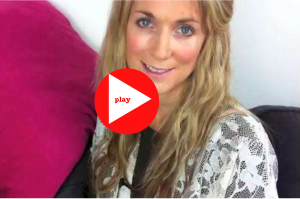This week self-compassion has been on my mind and I’ve been wondering why it’s often so difficult to accomplish. We are so frequently hard on ourselves and find it easier to beat ourselves up rather than viewing ourselves as a small child and treating ourselves with kindness, sympathy, gentleness and benevolence.
In those moments of harsh self-criticism, in order to effect more self-compassion I try to look at myself as if I’m a small child. I use my son as an example: I consider how I treat him. In particular, I consider how I treat him when he makes a mistake- when he can’t quite get something right; when he’s struggling with something new and I look at how I communicate with him. I do it with compassion, with understanding and with unconditional love.
The challenge is to apply that level of communication to ourselves. Sometimes when we make a mistake or are struggling with something or just not winning with something we have a horrible inner-critic telling us we are ‘stupid’ or ‘can’t do it’ ‘we are a failure’. Perhaps we are tapping into stuff that may have been said to us as a small child. Perhaps it was spoken by a teacher or parent, relative or other adult. In their eyes it might have been an off-the-cuff comment but children are very likely to internalise this sort of stuff. Often women subconsciously take on this criticism and turn the voice of someone else into their own voice.
It’s in that moment of making a mistake or struggling that the voice raises its head- so rather than having that chat with ourselves it is so important to exercise self-compassion.
In doing this take a deep breath and look at yourself as if you are a small child learning to walk, or write or ride a bike. We need to say to ourselves ‘it’s ok’, ‘you’re doing your best’, ‘everyday you’re getting better’. Most importantly, we need to say ‘I love you regardless.’ Put simply we need to exercise self-love.
The moment of self-compassion takes the pressure off our own need to be perfect. Be compassionate as you are learning to love yourself. Replace your negative self-talk with: “I’m doing my best’, ‘I’m creating greater awareness everyday’, ‘I’m getting to know myself’, ‘I’m beginning to understand all parts of me’ and ‘I’m beginning to really love that person’ – that’s compassion.
Self-compassion also has a direct physical effect on our bodies and our hormones. Criticism raises our cortisol levels. We find ourselves in a ‘fight or flight’ situation. Criticism means our blood-pressure rises and our heartbeat races. Energetically we find ourselves up-high in our shoulders – opening ourselves to headaches and back pain. Conversely, self-compassion has the opposite effect; it is the opposite of ‘fight or flight’. In choosing self-compassion we can breathe, relax and just be. We accept ourselves as we are and allow ourselves some self-nurture like receiving a great big hug.
My latest video encourages you to develop Self-Compassion! In fact, I applied self-compassion when I discovered this video lopped off the top of my head! Rather than giving yourself a hard time and listening to that horrible inner critic, develop a more loving and understanding relationship with yourself. Start to speak to yourself in a way that you would speak to a small child. I dare you! x
Leave a comment sharing the ways that you practised self-compassion this week.


